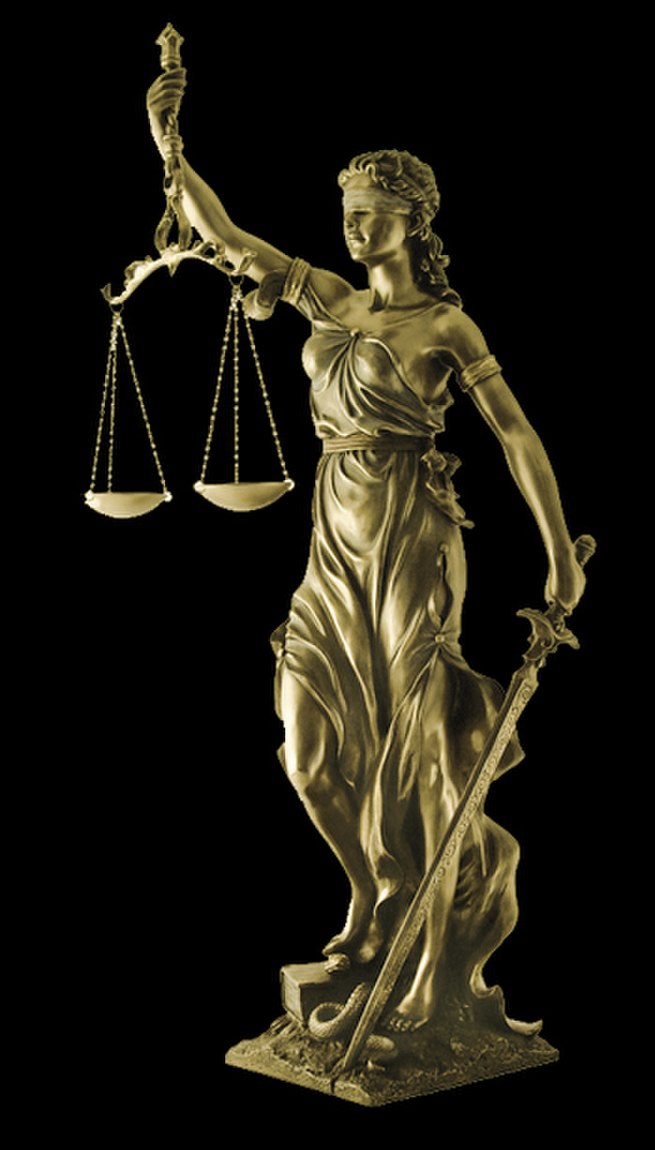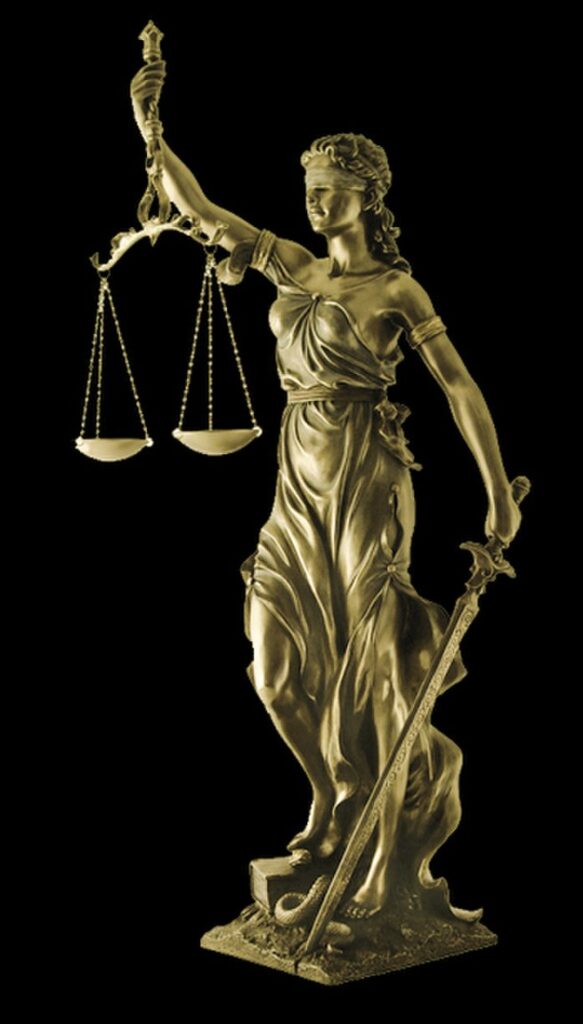
Main Difference
The main difference between Law and Policy is that the Law is a system of rules and guidelines, generally backed by governmental authority and Policy is a principle or protocol to guide decisions and achieve rational outcomes
-
Law
Law is a system of rules that are created and enforced through social or governmental institutions to regulate behavior. Law is a system that regulates and ensures that individuals or a community adhere to the will of the state. State-enforced laws can be made by a collective legislature or by a single legislator, resulting in statutes, by the executive through decrees and regulations, or established by judges through precedent, normally in common law jurisdictions. Private individuals can create legally binding contracts, including arbitration agreements that may elect to accept alternative arbitration to the normal court process. The formation of laws themselves may be influenced by a constitution, written or tacit, and the rights encoded therein. The law shapes politics, economics, history and society in various ways and serves as a mediator of relations between people.
A general distinction can be made between (a) civil law jurisdictions, in which a legislature or other central body codifies and consolidates their laws, and (b) common law systems, where judge-made precedent is accepted as binding law. Historically, religious laws played a significant role even in settling of secular matters, and is still used in some religious communities. Islamic Sharia law is the world’s most widely used religious law, and is used as the primary legal system in some countries, such as Iran and Saudi Arabia.
The adjudication of the law is generally divided into two main areas. Criminal law deals with conduct that is considered harmful to social order and in which the guilty party may be imprisoned or fined. Civil law (not to be confused with civil law jurisdictions above) deals with the resolution of lawsuits (disputes) between individuals or organizations.
Law provides a source of scholarly inquiry into legal history, philosophy, economic analysis and sociology. Law also raises important and complex issues concerning equality, fairness, and justice.
-
Policy
A policy is a deliberate system of principles to guide decisions and achieve rational outcomes. A policy is a statement of intent, and is implemented as a procedure or protocol. Policies are generally adopted by a governance body within an organization. Policies can assist in both subjective and objective decision making. Policies to assist in subjective decision making usually assist senior management with decisions that must be based on the relative merits of a number of factors, and as a result are often hard to test objectively, e.g. work-life balance policy. In contrast policies to assist in objective decision making are usually operational in nature and can be objectively tested, e.g. password policy.The term may apply to government, private sector organizations and groups, as well as individuals. Presidential executive orders, corporate privacy policies, and parliamentary rules of order are all examples of policy. Policy differs from rules or law. While law can compel or prohibit behaviors (e.g. a law requiring the payment of taxes on income), policy merely guides actions toward those that are most likely to achieve a desired outcome.Policy or policy study may also refer to the process of making important organizational decisions, including the identification of different alternatives such as programs or spending priorities, and choosing among them on the basis of the impact they will have. Policies can be understood as political, managerial, financial, and administrative mechanisms arranged to reach explicit goals. In public corporate finance, a critical accounting policy is a policy for a firm/company or an industry that is considered to have a notably high subjective element, and that has a material impact on the financial statements.
-
Law (noun)
The body of binding rules and regulations, customs{{,}} and standards established in a community by its legislative and judicial authorities.
“the courts interpret the law; entrapment is against the law”
-
Law (noun)
The body of such rules that pertain to a particular topic.
“property law; commercial hunting and fishing law”
-
Law (noun)
A binding regulation or custom established in a community in this way.
“There is a law against importing wallabies.”
“A new law forbids driving on that road.”
“The court ruled that the executive order was not law and nullified it.”
-
Law (noun)
A rule, such as:
-
Law (noun)
Common law, as contrasted with equity.
-
Law (noun)
Any rule that must or should be obeyed, concerning behaviours and their consequences. mores.}}
“”Do unto others as you wish them to do unto you” is a good law to follow.”
“the law of self-preservation”
-
Law (noun)
A rule or principle regarding the construction of language or art.
“the laws of playwriting and poetry”
-
Law (noun)
A statement (in physics, etc) of an (observed, established) order or sequence or relationship of phenomena which is invariable under certain conditions. theory.}}
“the laws of thermodynamics”
“Newton’s third law of motion states that to every action there is always an equal and opposite reaction. This is one of several laws derived from his general theory expounded in the Philosophiæ Naturalis Principia Mathematica.”
-
Law (noun)
A statement (of relation) that is true under specified conditions; a mathematical or logical rule.
“Mathematical laws can be proved purely through mathematics, without scientific experimentation.”
-
Law (noun)
Any statement of the relation of acts and conditions to their consequences.
“the law of scarcity; the law of supply and demand”
-
Law (noun)
The control and order brought about by the observance of such rules.
“They worked to maintain law and order.”
“It was a territory without law, marked by violence.”
-
Law (noun)
A person or group that act(s) with authority to uphold such rules and order (for example, one or more police officers).
“Here comes the law — run!”
-
Law (noun)
The profession that deals with such rules (as lawyers, judges, police officers, etc).
“He is studying for a career in law.”
“She has practiced law in New York for twenty years.”
-
Law (noun)
Jurisprudence, the field of knowledge which encompasses these rules.
“She went to university to study law.”
-
Law (noun)
Litigation, legal action (as a means of maintaining or restoring order, redressing wrongs, etc).
“They were quick to go to law.”
-
Law (noun)
An allowance of distance or time (a head start) given to a weaker (human or animal) competitor in a race, to make the race more fair.
-
Law (noun)
One of two metaphysical forces ruling the world in some fantasy settings, also called order, and opposed to chaos.
-
Law (noun)
An oath sworn before a court, especially disclaiming a debt. wager of law”, “wage one’s law”, “perform one’s law”, “lose one’s law”.}}
-
Law (noun)
A tumulus of stones.
-
Law (noun)
A hill.
-
Law (verb)
To work as a lawyer; to practice law.
-
Law (verb)
To prosecute or sue (someone), to litigate.
-
Law (verb)
To rule over (with a certain effect) by law; govern.
-
Law (verb)
To enforce the law.
-
Law (verb)
To subject to legal restrictions.
-
Law (interjection)
An exclamation of mild surprise; lawks.
-
Policy (noun)
The art of governance; political science. 14th–18th c.
-
Policy (noun)
A state; a polity. 14th–16th c.
-
Policy (noun)
A set political system; civil administration. 15th–19th c.
-
Policy (noun)
A trick; a stratagem. 15th–19th c.
-
Policy (noun)
A principle of behaviour, conduct etc. thought to be desirable or necessary, especially as formally expressed by a government or other authoritative body. from 15th c.
“The Communist Party has a policy of returning power to the workers.”
-
Policy (noun)
Wise or advantageous conduct; prudence, formerly also with connotations of craftiness. from 15th c.
-
Policy (noun)
Specifically, political shrewdness or (formerly) cunning; statecraft. from 15th c.
-
Policy (noun)
The grounds of a large country house. from 18th c.
-
Policy (noun)
Motive; object; inducement.
-
Policy (noun)
An illegal daily lottery in late nineteenth and early twentieth century USA on numbers drawn from a lottery wheel (no plural)
-
Policy (noun)
A number pool lottery
-
Policy (verb)
To regulate by laws; to reduce to order.
-
Policy (noun)
a course or principle of action adopted or proposed by an organization or individual
“it is not company policy to dispense with our older workers”
“the government’s controversial economic policies”
-
Policy (noun)
prudent or expedient conduct or action
“a course of policy and wisdom”
-
Policy (noun)
a contract of insurance
“they took out a joint policy”
-
Policy (noun)
an illegal lottery or numbers game
“he swore that he had never played policy in his life”

